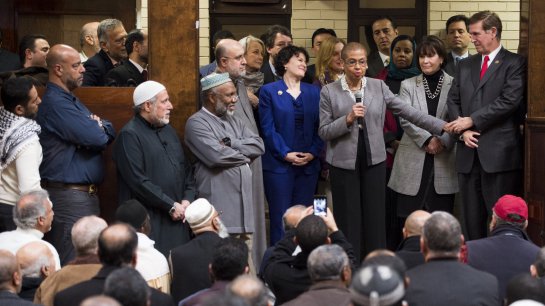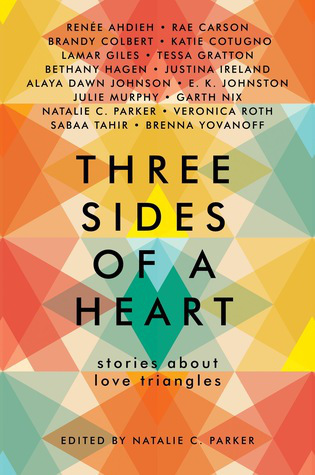
Democratic members of Congress address the worshipers at the Dar al-Hijrah Islamic Center after Friday prayers on Dec. 4 in Falls Church, Va. Bill Clark/CQ Roll Calll
Democratic members of Congress address the worshipers at the Dar al-Hijrah Islamic Center after Friday prayers on Dec. 4 in Falls Church, Va.
Bill Clark/CQ Roll Calll
The Dar al-Hijrah mosque in Northern Virginia has seen its share of attention. Two of the hijackers in the Sept. 11 attacks prayed there, and jihadi propagandist Anwar al-Awlaki served as an imam at the mosque before heading off to Yemen to join al-Qaida.
Now, with a U.S. president-elect who has suggested he will take a hard line with Muslim-Americans, the worshipers at Dar al-Hijrah again are bracing for scrutiny and looking for reassurance.
“For anyone who feels anxiety about the current political crisis and what you hear in the public discourse, I am completely confident,” Imam Johari Abdul-Malik told the men and women assembled at the mosque last week for Friday prayers. “Not only will Islam survive, but it will thrive.”
The worshipers are a diverse group, including security guards, housewives, doctors and educators. Most are immigrants — Dar al-Hijrah means “place of migration” in Arabic — and between them they speak 37 languages.
Many fear they will no longer be welcome in America with Donald Trump as president.
“It’s a concern,” says Wadi Adam Lahrim, who immigrated from Morocco to the United States with his parents as a child 30 years ago. “We have a new president who has the support of a lot of people who are not very friendly to the Muslim community.”
In his sermon, Abdul-Malik reminded worshipers that many of them had immigrated to the United States from countries where Islam is under far greater pressure.
“Many of the people here grew up under dictatorship,” he said. “We had a woman here the other week. She said: ‘Imam, I grew up in Albania, where they outlawed the practice of Islam. There was no freedom of religion under the communists. We had to go in our houses and hide, so we could pray.’ ”
In the months after the Sept. 11 attacks, Dar al-Hijrah was visited often by law enforcement officials, and the monitoring led to conflict. In the years since, however, the mosque leadership has worked closely with law enforcement agencies.
Article continues:
Related





